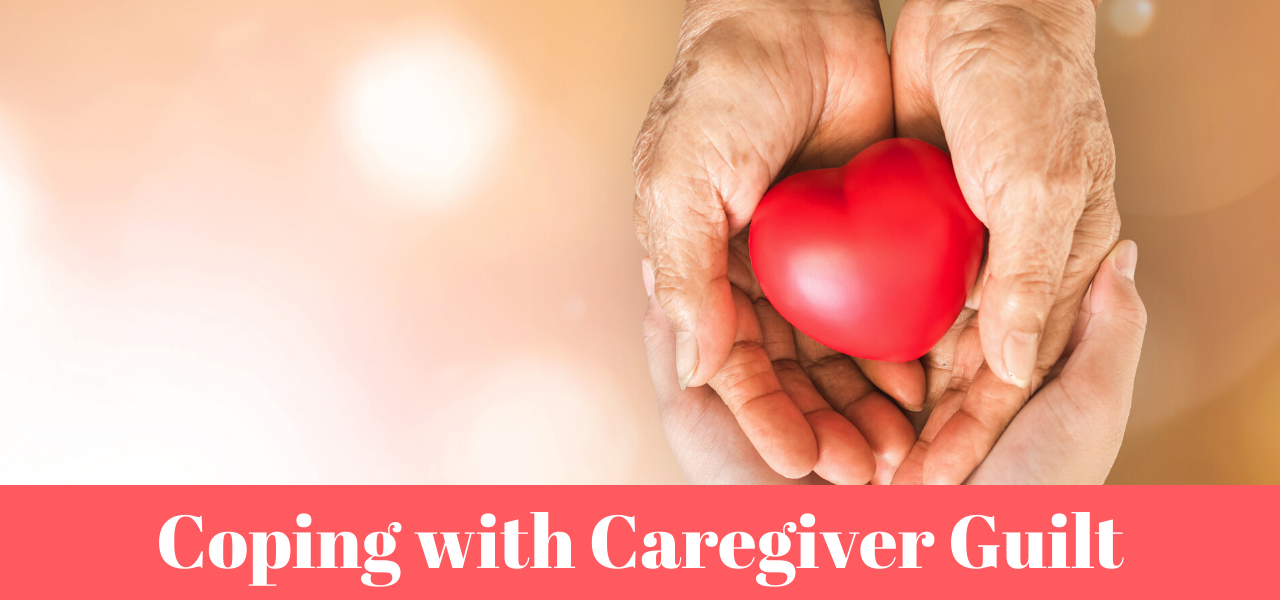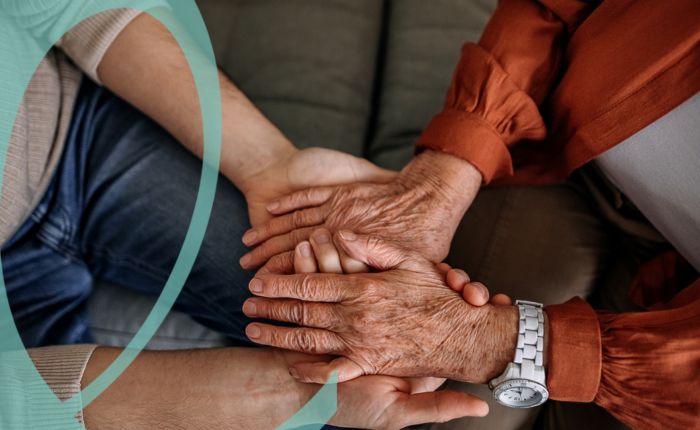
Caregivers are required, by the nature of their duties, to make personal decisions for a loved one – and that can come with a lot of stress and guilt, wondering if they are making the best decisions. Take a closer look at what can cause caregiver guilt and how you can cope with this guilt in your own life.
What is Caregiver Guilt?
There is no doubt that caregiving is a full-time job. It’s demanding and stressful and frankly, it can be all-consuming. This guilt can put caregivers at an increased risk for anxiety and depression. In fact, 20% of caregivers show signs of clinical depression, twice the rate of the general population.
That’s not to say it’s not rewarding, because it definitely is. But, the rewards of caregiving can come with a high price tag. Even with as much time and energy as caregivers put towards caring for a loved one, caregivers often carry around undeserved guilt, feeling like they could be doing more for a loved one.
What Causes Caregiver Guilt?
From the outside looking in, caregivers are courageous and brave, putting aside so much of their own lives to care for another. Despite all appearances, caregivers can experience tumultuous emotions and guilt in their caregiving journey daily. Here are some reasons that caregivers feel guilt:
Experience Leisure Care Senior Living

MacKenzie Place - Fort Collins
Independent Living, Assisted Living, and Memory Care in Fort Collins, Colorado

The Landing of North Haven
Independent Living, Assisted Living, and Memory Care in North Haven, Connecticut
Resentment for losing personal time
It’s very natural to feel resentment towards something or someone when you feel like they have placed so many demands on your life. However, these natural feelings can lead to cycles of guilt when a caregiver feels bad for their resentment.
Frustration over past tensions
Many family caregivers are caring for parents and they may be dealing with complex family relationships. Past tensions and relational failures can be very painful and hinder the caregiver and patient relationships bringing increased feelings of guilt over past conflict.
Comparison
Comparison is said to be the thief of joy, stealing our present joy and dimming its light. Caregivers can easily fall into this trap, comparing themselves to other caregivers and feeling like they aren’t doing as much or as well as someone else. They may also compare themselves to others who are not caregivers, being envious of their free time and then feel guilty for that emotion.
Coping with personal issues
A recent study from Harvard revealed that nearly 75% of the workforce has caregiving responsibilities and 1 in 3 caregivers have had to quit their jobs because of caregiving duties. Caregivers are not exempt from the stress of a job and caregiving can bring financial stress, stress on a marriage, stress between siblings, and more. Caregivers may feel guilty for focusing efforts on personal issues, being distracted from caring for their loved ones.
Moving a loved one to senior living
Feelings of guilt can be especially poignant after a move to senior living when a caregiver may feel like he or she has ‘given up’ on a loved one – even when they know it’s the best situation for their loved one.
5 Tips for Coping with Caregiver Guilt
Everyone feels guilty at times. Like most other emotions, guilt can propel you to a better version of yourself, if you let it. These tips can help you manage guilt and even use it as a tool to propel yourself into a new chapter of caregiving.
1. Acknowledge feelings of guilt
Hiding guilt leads to shame and shame leads to more guilt. It’s a vicious cycle that you can break by naming your guilt. Speak with a trusted friend, or just say to yourself, “I feel guilty about my feelings of resentment” or “I feel guilty that I am dealing with a personal issue that is distracting me from caregiving.” Once you name an emotion, it often feels less threatening and less intimidating. And, if you say it to a friend, another caregiver, or even your loved one, you may find you aren’t alone in your feelings.
2. Give yourself compassion and grace
You are not expected to be a selfless servant. Give yourself compassion and grace, allowing yourself to experience a range of emotions and realize that feelings come and go. Experience them, name them, and let them go. Everyone has bad moments and bad days.
3. Get a fresh perspective
Sometimes, when you are experiencing guilt, finding time alone is the best way to think through your emotions. Reach out for respite care or ask a trusted friend to watch your loved one. Get some exercise, take a nap, drink water. Practice self-care for just a few hours and you may find that some of those feelings of guilt are gone.
4. Change your behavior, if necessary
What brings on your feelings of guilt? If you can name certain things that bring on these emotions, be prepared for them and do your best to avoid them. For example, if you are feeling guilty about not visiting a loved one in senior living, set a weekly time to stop by. Manage everyone’s expectations, set boundaries, and let your guilt go.
5. Reimagine your caregiving role
Caregiving is a fluid job. It’s constantly changing with the needs of your loved one. You must make the best choice with the information you have at the time. Trust your instinct. Trust your knowledge of your loved one. Reimagine what caregiving looks like in your life. Maybe it means calling for help or joining a support group. Maybe it means checking out a local senior living community. Open lines of communication, ask for help, and give yourself grace.
The truth is that there is no one way to be a great caregiver. In fact, there are a million ways to show your loved one that you care about their health and their future. If you are experiencing caregiver guilt, stop by or call one of our Leisure Care communities today. A move to senior living does not mean you are no longer a caregiver. At Leisure Care, you are an integral part of your loved one’s life and care. Think of us as your partner, your confidant, your trusted friend in this journey – and it’s going to be a good one.
How has caregiver guilt affected you? Share your experiences with us in the comments below. We’d love to hear from you!
Find a Leisure Care Community
Better with age, exceptional with us! Come and see how Leisure Care communities are helping seniors rediscover (and sometimes reinvent) themselves.






